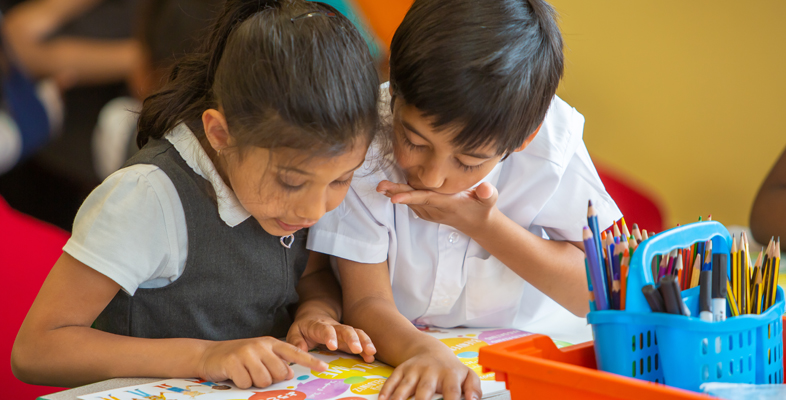References
Britton, J. (1970) Language and Learning. London: Penguin.
Cliff-Hodges, G. (2010) ‘Rivers of reading: Using critical incident collages to learn about adolescent readers and their readership’, English in Education, 44(3), pp. 181–200.
Cremin, T., Mottram, M., Powell, S., Collins R. and Safford K. (2014) Building Communities of Engaged Readers: Reading for Pleasure. London and NY: Routledge.
Crum. M. (2019) ‘Sorry, Ebooks. These 9 Studies Show Why Print Is Better’, Huffington Post.Available at: https://www.huffpost.com/ entry/ print-ebooks-studies_n_6762674 [Tip: hold Ctrl and click a link to open it in a new tab. (Hide tip)] (Accessed: 17 August 2021).
European Commission (2012) EU High Level Group of Experts on Literacy: Final Report. Luxembourg: Publications Office of the European Union. Available at:https://op.europa.eu/ en/ publication-detail/ -/ publication/ 96d782cc-7cad-4389-869a-bbc8e15e5aeb (Accessed: 17 August 2021).
Hempel-Jorgensen, A., Cremin, T., Harris, D. and Chamberlain, L. (2018) ‘Pedagogy for reading for pleasure in low socio-economic primary schools: beyond “pedagogy of poverty”?’ Literacy, 52(2) pp. 86–94.
Hempel-Jorgensen, A. and Cremin, T. (forthcoming) ‘An intersectionality approach to understanding ‘boys’ engagement with reading’, International Journal of Qualitative Studies in Education.
Iser, W. (1978) The Act of Reading. Baltimore, MD,:Johns Hopkins University Press.
Kuzmičová, A. and Bálint, K. (2019) ‘Personal Relevance in Story Reading: A Research Review’, Poetics Today, 40(3), pp. 429–451.
Kucirkova, N. and Cremin, T. (2020) Children Reading for Pleasure in the Digital Age: Mapping Reader Engagement. London: Sage.
Kuzmičová, A. and Cremin, T. (2021) ‘Different fiction genres take children’s memories to different places’, Cambridge Journal of Education. doi: 10.1080/0305764X.2021.1937523.
Littleton, K. & Mercer, N. (2013) Interthinking: Putting talk to work. London: Routledge.
McGeown, S., Norgate, R. & Warhurst, A. (2012) ‘Exploring intrinsic and extrinsic reading motivation among very good and very poor readers’, Educational Research, 54(3), pp. 309–322. doi: 10.1080/00131881.2012.710089.
Moss, G. and McDonald, J. W. (2004) ‘The borrowers: library records as unobtrusive measures of children’s reading preferences’, Journal of Research in Reading, 27, pp. 401–412.
Munzer, T., Miller, A., Weeks, H., Kaciroti, N. and Radesky, J. (2019) ‘Differences in Parent-Toddler Interactions With Electronic Versus Print Books’, Pediatrics, 143 (4), e20182012. doi: https://doi.org/ 10.1542/ peds.2018-2012
O’Donnell, B. and Hallam, S. (2014) ‘Read for my school: digital versus paper books’, London book fair conference. London, 2 April.
Orkin, M., Pott, M., Wolf, M., May, S. and Brand, E. (2018) ‘Beyond gold stars: Improving the skills and engagement of struggling readers through intrinsic motivation’, Reading and Writing Quarterly, 34(3), pp. 203–217.
Rosenblatt, L. (1994) The Reader, the Text, the Poem: The Transactional Theory of the Literary Work. Illinois: Southern Illinois University Press.
Ross, C. S., McKechnie, L. and Rothbauer, P. M. (2006) Reading Matters: What research reveals about reading, libraries and community. Westport: Libraries Unlimited.
Strouse, G. and Ganea. P. (2017) ‘A print book preference: caregivers report higher child enjoyment and more adult-child interactions when reading print than electronic books’, International Journal of Child Computer Interaction, 12, pp. 8–15. doi: https://doi.org/10.1016/j.ijcci.2017.02.001
Topping, K., Duran, D. and Van Keer, H. (2016) Using peer tutoring to improve reading skills: A practical guide for teachers. London & New York: Routledge.
Therman, C. (2008) ‘Remindings, understanding and involvement: a close reading of the content and context of remindings’ in Auracher, J. (ed.) New beginnings in literary studies. Newcastle-upon-Tyne: Cambridge Scholars Publishing, pp. 352–371.
Torday, P. (no date) ‘Author spotlights – Piers Torday’. Interview with The Open University Reading for Pleasure. Available at: https://ourfp.org/ author_spotlight/ piers-torday/ (Accessed: 17 August 2021).
UNESCO (2017) Literacy Rates Continue to Rise from One Generation to the Next: Fact Sheet 45. Available at: http://uis.unesco.org/ sites/ default/ files/ documents/ fs45-literacy-rates-continue-rise-generation-to-next-en-2017_0.pdf (Accessed: 29 July 2021).
